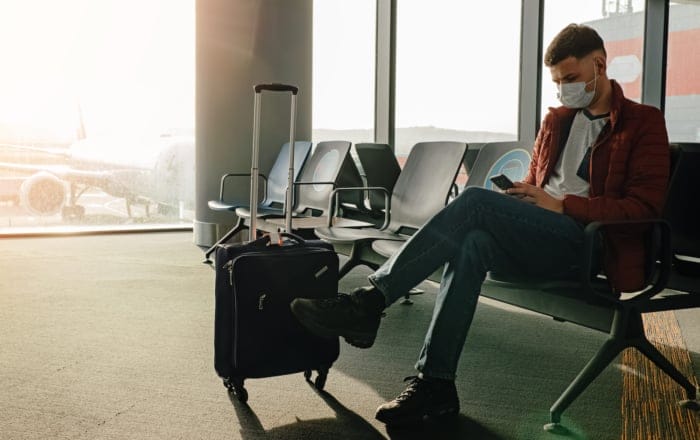
As cases of Monkeypox rise globally, the World Health Organization has declared the disease a global emergency. In the U.S., there are 6,300 cases known cases, with numbers growing daily.
So what does this mean for travel? According to the Centers for Disease Control and Prevention (CDC), cases among travelers are rare. But with the disease spreading, it’s a good idea to follow precautions when traveling.
How to protect yourself while traveling
- Avoid close contact: Monkeypox is not known to be airborne, and is believed to be passed via direct contact with someone infected with the virus. Do not hug, kiss or touch people who have a rash or skin or genital lesions. Avoid sharing cutlery and cups and avoid the clothes or bedding of a sick person.
- Wash hands: Make sure you wash your hands thoroughly and often with soap and water. Also keep hand sanitizer on you that contains at least 60% alcohol.
- Stay away from animals when traveling: Do not touch any live or dead wild animals, such as rodents and primates, like monkeys or apes. Do not eat meat from wild game and don’t use products, like creams or lotions, derived from African wild animals.
- Watch for symptoms: If you traveled and you get a fever or you develop any unexplained rashes or skin lesions, contact your doctor immediately. Avoid contact with others and don’t use public transportation until you get the okay from a healthcare professional.
what about the monkeypox vaccine?
In June, the U.S. government announced that 56,000 doses of the monkeypox vaccine would be distributed across the country immediately, with an additional several million arriving in the next few months.
The vaccine is called JYNNEOS and is FDA approved. It can help reduce the risk of monkeypox infections if given within 4 days of exposure, and if given within 14 days of exposure, it can reduce the risk of serious illness. Because quantities of the vaccine are limited, eligibility is restricted to people with the highest risk of exposure and you must be 18 or older to receive the vaccine.
Though there has been no formal guidance from the CDC yet, in most states, the vaccine is free of charge and available to immigrants regardless of their immigration status.
The White House also announced it would bolster access to Monkeypox testing nationwide, starting with 78 testing sites across 48 states.
To learn more about the Monkeypox vaccine, click here.